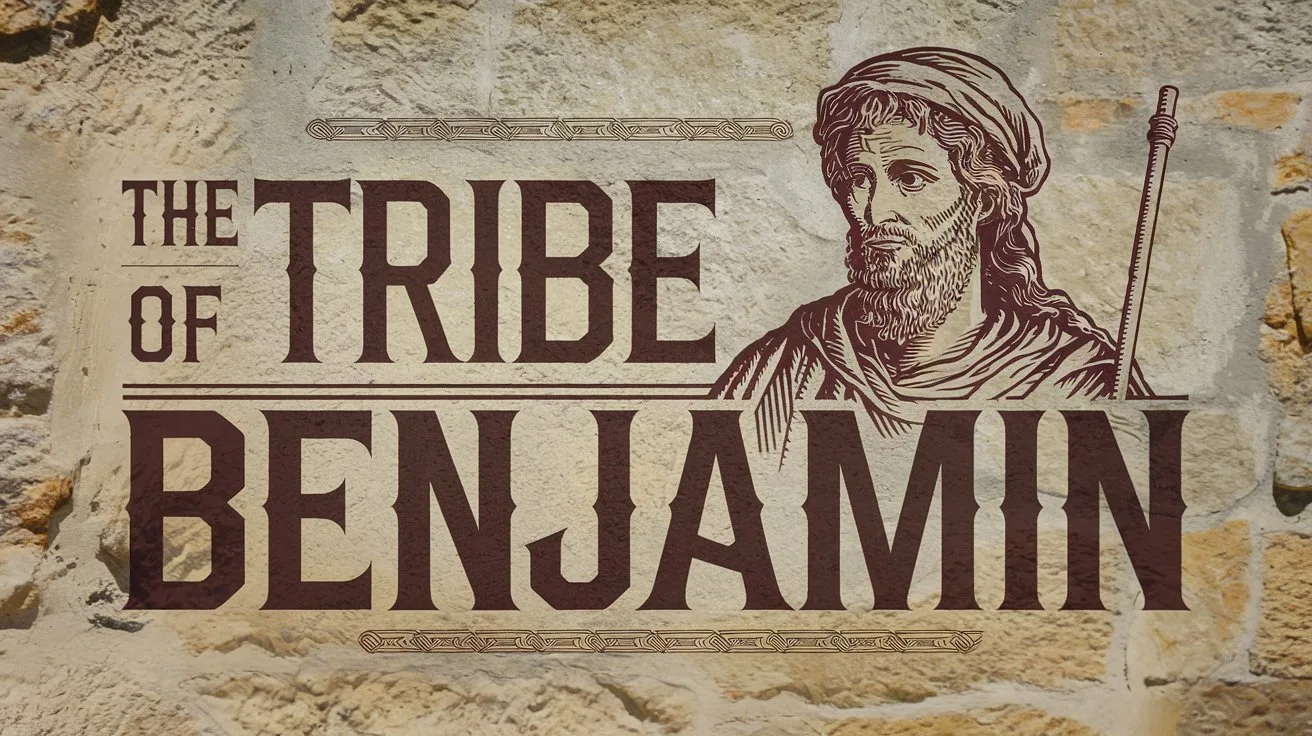The tribe of Benjamin traces its origins back to Benjamin, the youngest son of Jacob (Israel) and Rachel. His birth was marked by sorrow, as Rachel died shortly after delivering him. She initially named him Ben-Oni, meaning “Son of My Sorrow,” but Jacob changed his name to Benjamin, meaning “Son of My Right Hand” (Genesis 35:18). This change signified not only his father’s love for him but also a foreshadowing of the tribe’s unique destiny: though small, they would be favored, protected, and powerful.
Jacob’s final blessing over Benjamin was significant:
“Benjamin is a ravenous wolf; In the morning he shall devour the prey, And at night he shall divide the spoil.” (Genesis 49:27)
This prophecy would characterize the tribe throughout history: small but fierce, known for their warrior spirit and resilience.
Where and When Did They Live?
The tribe of Benjamin was allotted land in central Israel, situated between Ephraim to the north and Judah to the south (Joshua 18:11-28). Their territory included key cities like Jericho, Gibeah, Bethel, Mizpah, and Gibeon, as well as Jerusalem, which later became Israel’s capital.
Though Benjamin was one of the smaller tribes, their land was strategically positioned (acting as a bridge between the northern and southern tribes). This location would later play a major role in Israel’s history, politics, and conflicts.
What is Unique About the Tribe of Benjamin?
The tribe of Benjamin holds a distinct place in biblical history, marked by both great victories and deep failures. They were a tribe of warriors, fiercely loyal, yet at times rebellious.
One of their most infamous moments is found in Judges 19-21, where the tribe was nearly wiped out due to their defense of Gibeah’s wickedness. After a Levite’s concubine was abused and killed in Gibeah, the rest of Israel went to war against Benjamin. Only 600 men survived after Israel nearly annihilated them in judgment. Yet, despite this, they were not erased. The other tribes allowed Benjamin to rebuild through marriage, ensuring their survival.
Despite their near destruction, Benjamin continued to rise in prominence. It was from this tribe that Israel’s first king, Saul, was chosen. In 1 Samuel 9:21, Saul expresses his surprise at being chosen, saying,
“Am I not a Benjamite, of the smallest of the tribes of Israel?”
His kingship fulfilled part of Benjamin’s destiny as a powerful force in Israel’s history.
Another notable figure from Benjamin was Mordecai, the uncle of Esther, who played a key role in saving the Jewish people from annihilation (Esther 2:5). His courage in the face of death was a reflection of Benjamin’s warrior nature. One of the most profound Benjamites in history is the Apostle Paul. He himself declared his tribal lineage:
“For I also am an Israelite, of the seed of Abraham, of the tribe of Benjamin.” (Romans 11:1)
Paul, once a persecutor of Christians, became one of the greatest evangelists in history—fitting for a tribe described as a “ravenous wolf,” as he fiercely defended the Gospel and spread it across the world.
Benjamin’s Role in the Kingdom of Israel
After the death of Saul, David from the tribe of Judah was anointed king. Though many Benjamites remained loyal to Saul’s house, they eventually pledged allegiance to David (1 Chronicles 12:1-2, 29).
When the kingdom later divided after Solomon’s reign, Benjamin remained with Judah, forming the Southern Kingdom (1 Kings 12:21). Even though they were a small tribe, their bond with Judah preserved them through history, whereas the Northern Kingdom was eventually lost to Assyrian captivity.
The fact that Jerusalem was located in Benjamin’s territory played a key role in their survival. Even after the Babylonian exile, when the Jews returned to rebuild the Temple and walls of Jerusalem, Benjamin was still standing.
From Small Beginnings to Lasting Impact
Despite being the smallest tribe, Benjamin’s legacy reaches far beyond their size. They produced kings, warriors, and one of the greatest of apostles. They were fierce and resilient, often walking the line between faithfulness and rebellion, yet always finding a way to remain in God’s redemptive plan.
They are a testimony to God’s providence: how He can take the smallest, the least expected, and use them for great things. The words of Jacob’s blessing still ring true:
“Benjamin is a ravenous wolf; In the morning he shall devour the prey, And at night he shall divide the spoil.” (Genesis 49:27)
They were warriors, overcomers, and a symbol of God’s ability to preserve His people.
My Final Thoughts
The tribe of Benjamin reminds us that God does not measure greatness by size, but by purpose. Though they were small, they were mighty. Though they fell, they rose again.
Their survival and success were not by their own strength, but because God had a plan for them. The same is true for us. No matter our past, no matter how small or insignificant we may feel, God has the power to redeem, restore, and use us for His glory.





 Get the book that teaches you how to evangelize and disarm doctrines from every single major cult group today.
Get the book that teaches you how to evangelize and disarm doctrines from every single major cult group today.